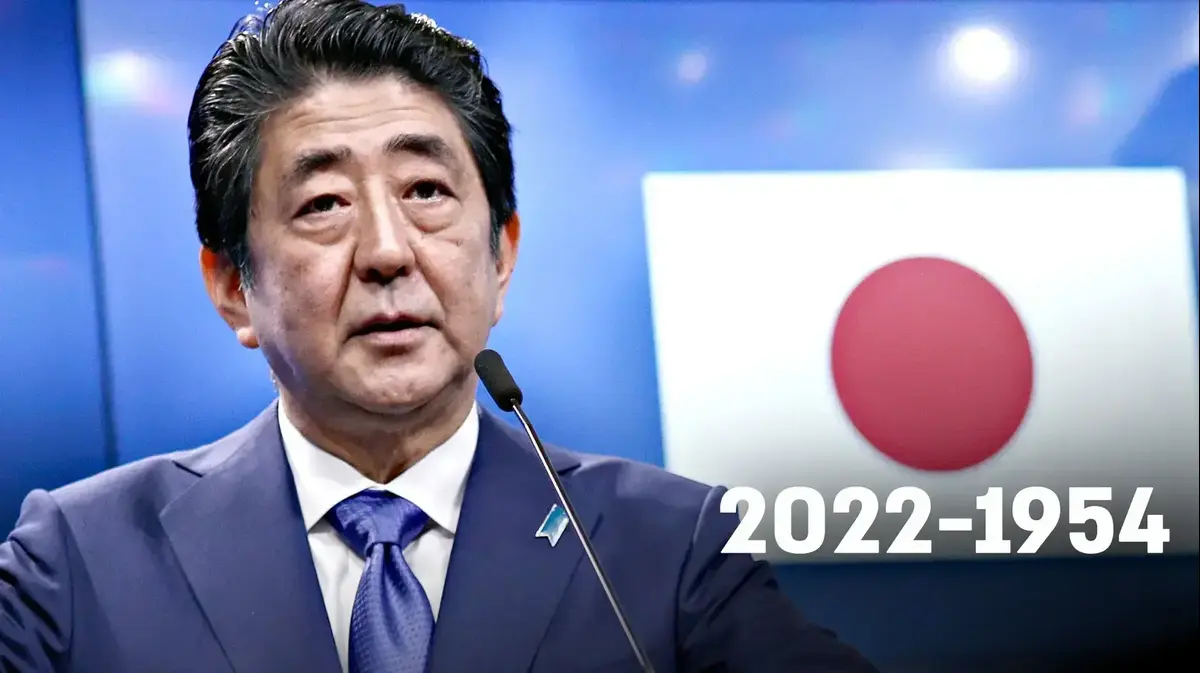Japan in mourning: Shinzo Abe is brought to rest in Tokyo
The former Japanese prime minister, who was assassinated at age 67 during a political speech, was buried in the Zhuji temple in the capital.
Crowds stand outside the venue, but only Abe's family and close friends will be present at the ceremony.
After the funeral, a procession will begin across Tokyo led by the hearse, which will carry the body of the former prime minister
Walla!
news
12/07/2022
Tuesday, 12 July 2022, 05:53 Updated: 05:54
Share on Facebook
Share on WhatsApp
Share on Twitter
Share on Email
Share on general
Comments
Comments
In the video: The suspect in the murder of Abe was handed over to the prosecution (Photo: Reuters)
Former Japanese Prime Minister Shinzo Abe, who was assassinated on Friday during a speech, was laid to rest today (Tuesday) in Tokyo.
Long columns of people dressed in black and white began to linger in recent hours outside the Zhuji Shrine, the place of Abba's funeral, but the ceremony itself will be open only to his family and close friends.
After the funeral, the caravan carrying Abba's body will travel through downtown Tokyo, adorned with ribbons and black flags, as a sign of mourning.
The procession will go through significant milestones in Abe's life, including the parliament building to which he was first elected in 1993 and the ministry from which he led Japan in two terms as prime minister.
Abe was shot while delivering a speech ahead of the parliamentary upper house elections in the city of Nara, and is 67 years old at the time of his death.
The man who admitted to the assassination is Tatsuya Yamagami, 41, a former soldier in Japan's naval self-defense force and now unemployed, who did not object to the arrest.
He admitted that he shot Baba with a homemade weapon during the election event.
More on the murder of Shinzo Abe
"Improvised, yet deadly": How did the shooter in Shinzo Abe produce the weapon?
Abba's assassination strengthened the ruling party in Japan's parliamentary elections
Saving from the first moment: How to start saving in four simple steps
Citizens arrive at Abe's funeral in Tokyo today (Photo: Reuters, Issei Kato)
Abba earned the nickname "The Prince" in light of his family's rich political past.
His father, Shintro Aba, was foreign minister, and his grandfather, Novosuka Kishi, was prime minister himself.
He was first elected to Parliament in 1993 and in 2005 joined the cabinet of Junichiro Koizumi, who appointed him to the senior post of Cabinet Secretary.
Its meteoric rise peaked in 2006, when it became Japan's youngest prime minister after World War II.
However, a series of scandals, including the loss of government pension records that affected some 50 million people, have hurt his government.
In July 2007 his party was discriminated against in the parliamentary upper house elections, and in September he had already resigned due to the ulcerative colitis he suffered from.
His comeback began in 2012, with his return as prime minister.
Abe said at the time that he had overcome the disease thanks to new drugs.
He was re-elected in 2014 and 2017 and became Japan's oldest prime minister ever.
His popularity plummeted, but he was left with no real rivals thanks to his control of the party, which changed its bylaws to allow him to serve as a leader for the third time in a row.
More on Walla!
Assassination in Japan: What is the "Union Church" of which the assassin's mother was a member?
To the full article
"The Prince."
Shinzo Abe (Photo: Reuters)
Abe was known for his hawkish positions on foreign and security issues, and he tried for a long time to change Japan's pacifist constitution, which the United States imposed on it after its surrender.
Abe's opponents saw him as a revisionist nationalist, representing the attitude of the older and more conservative generation, while trying to obscure Japan's crimes in World War II.
Abe's supporters believe he was a pragmatic realist, noting the strengthening of Japan's position in the world and the advancement of its national interests while combining its legitimate aspirations with being the world's third largest economy.
Abe's nationalist views have often provoked tensions with China and South Korea, especially after his 2013 visit to the Yasukuni Temple in Tokyo, where Japanese war criminals are commemorated.
news
World news
Asia and the Pacific
Tags
Japan
Shinzo Abe

